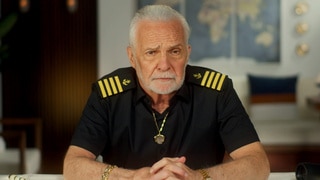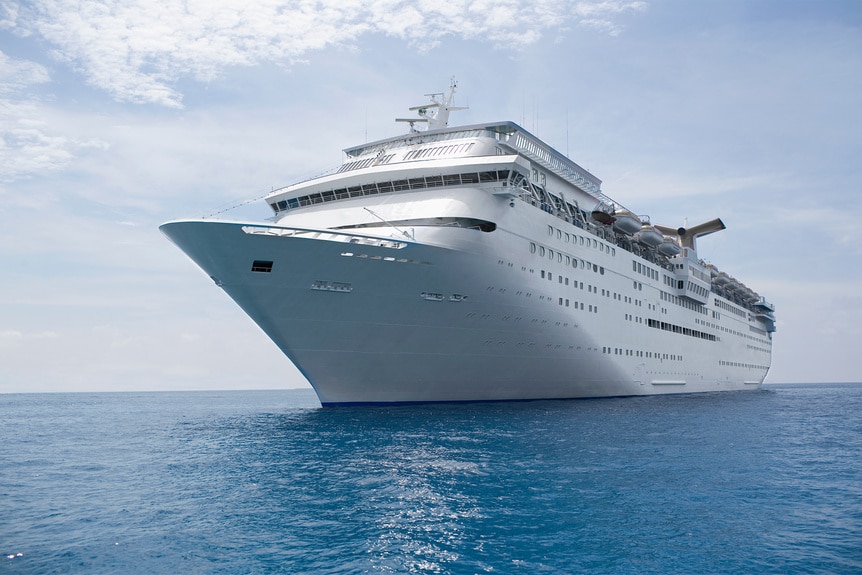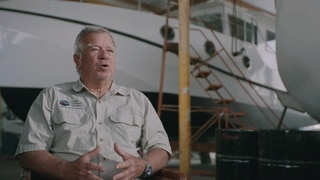Create a free profile to get unlimited access to exclusive videos, breaking news, sweepstakes, and more!
What Really Happens When Murders Occur on International Waters? Well ...
When a murder is carried out thousands of miles away from U.S. shores, who steps in to investigate?
The dark, vast open waters may seem like the perfect spot to carry out a sinister murder — but these perpetrators aren’t immune from prosecution.
Oxygen’s new series Deadly Waters with Captain Lee, premiering June 1 at 9/8c, recounts some of the most chilling crimes ever committed in open waters including a Florida couple who mysteriously disappeared and a Bahamas-bound “ghost ship” covered in blood found floating alone.
But even though a murder may be carried out thousands of miles from the United States shores, in many instances, federal prosecutors still have jurisdiction to prosecute the killers.
To find out more about how these unique cases are handled, Oxygen.com spoke with Rutgers Law Professor Steven Friedell, who teaches a course on maritime law.
Who has jurisdiction to prosecute crimes in international waters?
“The United States doesn’t have free will and jurisdiction to prosecute every crime on every ship on the high seas,” Friedell explained. “It’s got to involve an American or an American-involved ship, basically, unless international law somehow permits it.”
The “special maritime and territorial jurisdiction of the United States”, as it’s known, allows the U.S. to step in when a crime occurs “any place outside the jurisdiction of any nation when the offense is committed by or against a national of the United States.” These offenses include anything from murder and manslaughter to kidnapping, rape, assault, or robbery.
The challenge often comes, according to Friedell, when more than one country has a jurisdictional claim. For instance, many vessels may be subject to the laws and regulations of the country where their ship has been registered, a concept known as the vessel’s flag state.
When it comes to large passenger vessels, like cruise ships, few are actually “flagged” in the United States.
“There is overlapping jurisdiction if it’s a French or a Norwegian vessel, there’s going to be some negotiation over that,” Friedell explained. “Presumably the country where the vessel is flagged would want to have priority.”
While the prosecution of cases where the U.S. does have jurisdiction often falls to the federal government, the exception is in instances when a crime is committed within three nautical miles of the coastline. In those instances, the state would have the jurisdiction.
“When it’s a foreign vessel and someone commits murder in the port of New York, then New York state would have the jurisdiction, but again, the foreign country might say no that’s our [vessel] and there might be some negotiations,” Friedel said.
What challenges are there to prosecuting crimes on open waters?
Sorting out complex jurisdictional issues may not be the only thing hindering investigations. According to the Hodge Law Firm, who has written about crimes on international waters, these cases can be “notoriously difficult” to enforce the law for a number of reasons including “limited resources on the high seas.”
“It can be challenging for law enforcers to patrol effectively because of the expanse of international waters,” they wrote.
Other challenges can occur when the crime is committed in international waters and no country steps in to claim jurisdiction.
Don't miss the latest in true crime:
Woman Seduces Ex-Cop Through AOL Chat Rooms and Cons Him Into Murdering Her Husband
Victim's Family Fights Release of Ex-Detective Found Guilty of Murder: "She Lied for Decades"
What Really Happened to Amy Lynn Bradley, a Woman Who Vanished From Her Cruise Ship?
Ian Urbina, a journalist with The New York Times, spoke to PBS News Hour in 2015 about an extensive investigation he did into crimes committed at sea in the shipping industry and said in some instances there is “no one wanting to investigate these matters.”
“When crimes occur, it’s usually against crew or the environment. And the crew are typically from poor countries and those countries that don’t have the wherewithal to prosecute,” he told the outlet.
He discovered the shipping industry can be rife with forced labor, abusive working conditions, and violence. In one disturbing instance, Urbina said a horrific act of violence was captured on grainy cell phone video.
“There are four men floating in the water. And over 10 minutes, they are shot. And at the end of the video, the most striking part is that those involved in the shooting pose for selfies,” he told PBS News Hour.
Although there was clear video evidence, no one stepped in to prosecute the offenders.
“There is no interested party that has the wherewithal to prosecute or investigate. And, at the end of the day, the seas are this sprawling space. And so pinning down when and where something occurs out there, when there are so few other people that weren't party to the crime, is difficult,” he said.
Major Crime Incidents "Rare" at Sea, Spokesperson Says
But that doesn’t necessarily mean that everyone can get away with murder.
When Micki Kanesaki disappeared on what she believed would be a dream Mediterranean vacation with her ex-husband, Lonnie Kocontes, in 2006, the FBI stepped in to investigate the case and Kocontes was eventually tried and convicted of her murder, according to Dateline: Unforgettable.
Utah father Kenneth Manzanares was also sentenced in June 2021 to 30 years in a federal prison after beating his wife, Kristy Manzanares, to death while on the Emerald Princess cruise ship in waters just outside southeast Alaska.
“No excuse can justify the savagery committed by this man, who will now spend the next three decades behind bars,” Robert Britt, Special Agent in Charge of the FBI Anchorage Field Office, said at the time in a release announcing the sentence. “The FBI worked tirelessly, with the support of our partners, to seek justice for Kristy – a beloved mother, daughter, sister and friend. While justice has now been served, the lasting impact and trauma this man inflicted on Kristy’s family can never be erased. Our thoughts are with Kristy’s family and her home community.”
Kenneth was found dead in his prison cell the next month, according to CNN.
While the location of the crime scene may be distinctive, these type of murders are often investigated by federal authorities much like they would be on land.
“You have to find evidence, which could be physical evidence, and you have to have witnesses,” Friedell said.
Anne Madison, a spokesperson for Cruise Lines International Association, stressed to USA Today earlier this year that these types of major crimes on cruise ships tend to be the exception rather than the rule and insisted that cruise ships are a safe way to travel.
“Cruise ships are one of the safest vacation options in the world, with rates of serious crimes that are exceedingly lower than those on land due to multiple layers of security and the nature of cruising,” she said. “Cruise lines have a zero-tolerance policy when it comes to criminal behavior, and allegations of major crimes on cruise ships are extremely rare.”
























